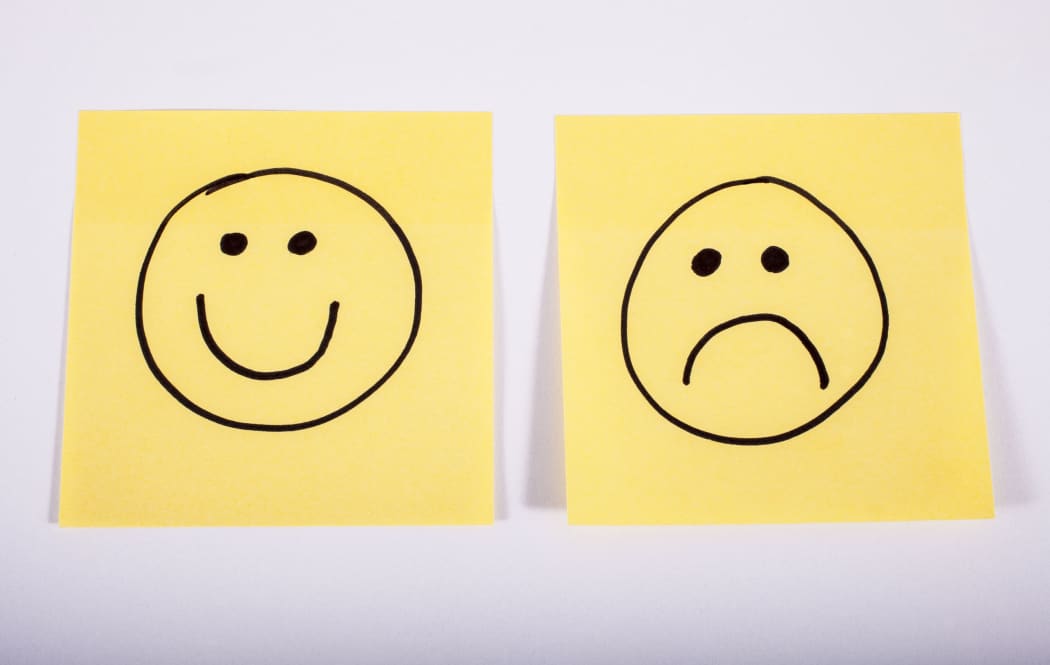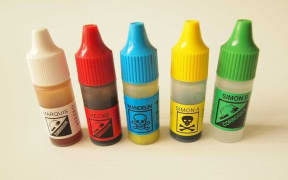Synthetic drugs sold as MDMA and ecstasy and oversized MDMA pills cause the most drug-related harm at NZ gigs and festivals, a volunteer with the drug checking service Know Your Stuff says.

Photo: chrisdorney/123RF
Know Your Stuff started setting up tents at these events to test what was really in punter's pills and powders three years ago.
The real trouble started here when party pills and herbal highs were made illegal in New Zealand three years ago, says volunteer Dr Jez Weston.
"Everybody who had some stock started selling them on the underground market and started describing them as MDMA because you can charge a lot more for that. There were a couple of years there where all of the MDMA was actually BZP [benzylpiperazine – a recreational drug with effects similar to amphetamine] or worse drugs."
Last year Know Your Stuff identified 97 percent of substances people brought in to the tents.
The most common were MDMA, ecstacy and LSD, Jez says.
Last year one in three substances that people believed to be MDMA turned out to be something else.
The biggest worry is when this is "bath salts" – laboratory-made drugs known as 'synthetic cathinones' which mimic commonly known drugs.
Cathinones are more dangerous than MDMA, Jez says.
"They're very unpredictable. They don't play well with alcohol. They can cause seizures, a lot of anxiety, they can make it difficult for people to sleep. And it's not what people are expecting.
"People who have taken cathinones expecting MDMA have had very unpleasant times."
A regular dose of MDMA is 100 milligrams, but Jez says they've seen pills weighing up to 600 milligrams.
An overdose of MDMA can lead to problems with body temperature, fluids, and seizures, he says.
"It's pretty bad for a whole lot of different organs and we're trying to avoid that.
"In New Zealand, the quality has been pretty poor and people have a habit of taking two at once. You're gonna be needing medical attention if that's your plan."
Two years ago half the LSD Know Your Stuff tested was found to be synthetic hallucinogens known as N-bombs.
These are a lot more dangerous than LSD, Jez says.
"They've certainly put people in hospital in New Zealand and killed people overseas."
So what does Know Your Stuff actually do?
"We rock up, we put up a tent, we have some signs that don't actually say 'Bring us your drugs'. That would be a little legally problematic."
A person takes their pill or powder to the back of the tent and scrapes off two small test samples – of about a tenth of a pill each – themselves (the Know Your Stuff volunteers don't handle the stuff for legal reasons).
They drop the sample into a small pile of chemical reagent, which changes colour to reveal the chemical make-up.
Then to really dig into the mixture of chemical components present, the other sample is placed on an infrared spectrometer – a $50,000 machine on loan from either the NZ Drug Foundation or the NZ Needle Exchange which is the global gold standard in such drug testing, Jez says.
Current testing techniques don't indicate the amount of active ingredients in a substance, so can't be used to guide dosage.
They haven't had any complaints from people unhappy with losing a bit of their investment, Jez says.
"People haven't been saying to us they don't want to test because they don't want to give stuff up."
So why don't police bust the tent?
While they have a responsibility to uphold the law, they're also pragmatic about drugs, Jez says.
"They see the negative side of drug use, they see the harm that can happen. They have never said anything publicly but I'm sure they recognise the benefit of the testing service."
At the end of each day, the Know Your Stuff volunteers have a meeting with the medics working at the event.
"We say this is what we've found, here are the problems you might end up seeing tonight and here's how to help people that are gonna be under the influence of a substance. We can say to them what that substance might be. Therefore they can do a better job of keeping people safe."
They also share their annual results publicly and with the Ministry of Health and police.
Many parents know their teenagers take more risks than they might like and are grateful there are support services -sometimes people even tell them they've heard about the testing tent from their parents, Jez says.
When it's confirmed a substance is not what the person thought they were buying, about half say they won't take it and throw it into a jar of bleach in the tent, Jez says.
The other half say they won't take as much or they'll take it knowing what to expect.
"We've kind of ruined their plans. Or rather their plans were always ruined, they've just kind of found out in advance."
How drug checks at festivals could save lives (Mava Enoka -The Wireless)
From Zero - Partying Hard
Politicians and police agree that drug-checking at music festivals is probably a good idea. So why is it still illegal? Audio



